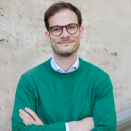At the Alfred von Oppenheim Center for the Future of Europe (AOZ), a small group of researchers from across Europe provide their perspectives on decision-making by the German government. The aim is twofold: to avoid misperceptions between Germany and its partners at a time of power shifts in Europe and geopolitical realignment and to help Germany help Europe to build a brighter future.
Main Topics:
- Internationalizing the Zeitenwende, Germany’s shift in defense, energy, economic, and foreign policy in response to Russia’s war on Ukraine
- Rethinking Franco-German efforts to reform the EU taking account of power shifts in Wider Europe
- Analyzing European choices about defense, security, and foreign policy in light of political developments in the United States
- Highlighting different ways for Europeans to do grand strategy and geopolitics – and to better combine values with interests
Read more
We provide an outside perspective on German decision-making and tackle misperceptions between Germany and its partners at a time of power shifts in Europe and of geopolitical realignment. By looking at German policies and policy-making from different angles, focusing on the country’s key relationships and factoring in the concerns of its neighbors and partners, we help Germany to play a positive role in constructing the future European order – and to help Europe build a brighter future.
In thinking about the future, we combine our expertise on the historical development of European alliances, institutions, and policies with methods of strategic foresight. And in thinking about European order, we look beyond the EU to include other European and transatlantic partnerships and institutions.
Applications for Our Research
Russia’s war of aggression against Ukraine and the EU’s strategic failures in fields such as defense, energy, and economic security have put the spotlight on German decision-making. Long Europe’s main status quo power, Germany now stands accused of a basic failure to listen to its neighbors. The country is under pressure to adapt its thinking to current geopolitical challenges and better calculate – or at least better articulate – its own interests.
We aim to help Germany become a good citizen of Europe, a “team power,” but how do we do so when the pressures Germany faces seem so contradictory? Germany needs to change its foreign policy significantly but also remain credible and predictable as a partner. It needs to assert itself in a new world order but also to build consensus with its neighbors.
Primarily, this means “Europeanizing Germany’s European policy” – encouraging Germany to first explain itself and accommodate its neighbors and then to better coordinate with the wider world, especially democratic partners. Through our projects, such as the Action Group Zeitenwende and European Policy Study Group, we inject international perspectives into the German debate on security and the economy. Through our long-standing work on Franco-German relations, we help Paris and Berlin handle the tensions of EU widening and deepening. In our project on transatlantic relations, we ask how Europeans can navigate Washington’s Euroskepticism and Germanoskepticism, especially when it comes to defense, trade, and important foreign policy issues.
The Alfred von Oppenheim Center for the Future of Europe (AOZ) also contributes to DGAP’s broader work on global order. We look at different ways in which the European Union can organize itself internally, and how this would affect its ability to influence global affairs. Recent global tensions have fueled calls for “European autonomy” and for the EU – alongside China and the United States – to be one of a “Big Three” that defines the future of globalization. Instead, we ask how the European Union can prevent itself from becoming too top-heavy, exploring how different kinds of internal reform can unlock new international alliances that, in turn, can better secure Europe’s future, allowing it to thrive rather than merely survive.
Publications
China “De-risking”
Who’s Afraid of (Ukraine’s) Victory?
For Germany’s chancellor, victory seems to be the hardest word. This reluctance appears driven by fears of geopolitical change, which he seems hesitant to shape, let alone master, and by drawing the wrong lessons from German history.









